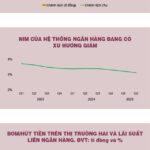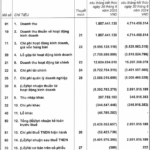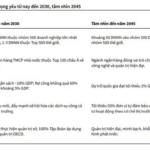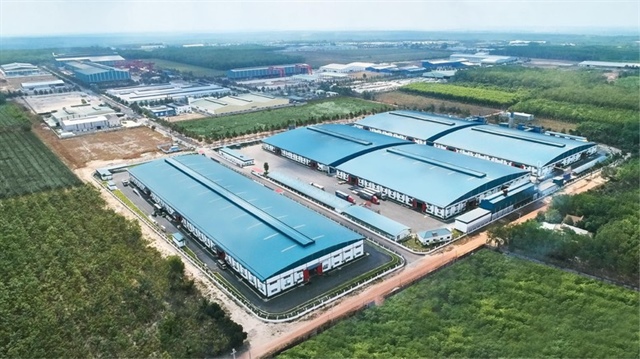
An Cuong Wood – One of the earliest recipients of investment fund capital – Photo: VGP/ Phuong Dung |
Long-term Domestic Capital Needs
As Vietnam aims for high GDP growth and aspires to become a high-income nation, investment needs will undoubtedly surge. Not only do key infrastructure projects require substantial funding, but the private business sector also needs resources to expand production, innovate, and integrate internationally. However, if Vietnam solely relies on bank credit (which is mostly short-term and cautious in risk appetite), government budget, and external capital as in the past, ensuring financial stability and autonomy will be challenging.
A positive aspect currently is Resolution 68-NQ/TW and several capital market reform policies emphasizing the important orientation of building a solid domestic capital foundation. Accordingly, resources will come from society and promote a group of domestic financial institutions, including investment funds as one of the sources to unlock capital for the private sector.
International experience shows that countries successful in transitioning from middle to high-income status have focused on developing diverse investment fund systems: pension funds, insurance funds, infrastructure investment funds, and national investment funds. Singapore and South Korea are exemplary models. They ensured long-term capital for development and enhanced resilience to global financial fluctuations.
Through these funds, the government will have sufficient capital to implement more infrastructure projects without depending on foreign capital. Additionally, this flow model will not only provide the private business sector with long-term capital for business development but also help the economy withstand “international financial storms,” according to Mr. Don Lam, CEO and Founding Shareholder of VinaCapital Group.
Consequently, the demand for private investment fund capital will continue as Vietnam attracts investors with its growth potential, young population, large domestic consumption needs, and stable macroeconomic environment. However, businesses’ capital mobilization still faces challenges.
According to experts, the current difficulty lies in the incomplete legal framework for private investment funds, uneven capital mobilization growth, and limited access to capital for small and medium-sized enterprises. From the opposite perspective, the readiness of Vietnamese enterprises remains limited, such as financial transparency, clear strategies, or psychological barriers when investment funds enter.
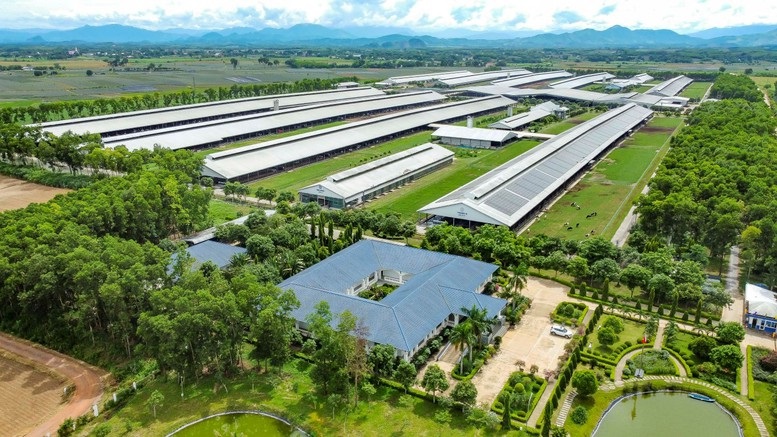 Financial funds will help the private sector have enough capital for long-term development – Photo: VGP/PD
|
Unlocking Capital for the Private Sector
Along with the ongoing market reforms, it is necessary to remove obstacles hindering investment capital flow into private enterprises, and many solutions can be implemented soon.
“In the immediate future, Vietnam needs to promptly improve mechanisms to develop voluntary supplementary pension funds and infrastructure project funds, known as REITs abroad. These are potential resources that, with appropriate policies, will help strengthen Vietnam’s sustainable financial foundation,” suggested Mr. Don Lam.
The second obstacle lies in the listed market story. In addition to the solutions mentioned by the state management agencies in the past, the current issue is that the number of public companies in Vietnam is still modest (less than 2,000 enterprises), and there has been a lack of prominent IPO deals to create a boost since 2019.
In addition to quantity, improving the quality of public companies, especially enhancing governance standards, is equally crucial. As the world focuses on sustainable development, enterprises must address not only business issues and pay attention to “financial health” but also enhance reporting quality, audit quality, or periodic reporting standards according to ESG and many other critical governance standards.
“Promoting public companies in both quantity and quality is a strategic solution to develop the capital market in depth, gradually forming a transparent, efficient, and internationally integrated financial ecosystem,” emphasized Mr. Don Lam.
The group of small and medium-sized enterprises also needs attention as they require capital to grow but struggle to access banks due to a lack of collateral. Meanwhile, many countries have models to support capital for this group through appropriate solutions, such as project-based lending without collateral.
The common denominator of these solutions is that private investment capital will mainly come from the people and the whole society. This requires Vietnam to promote technology application and digitize capital mobilization channels. With new technology strengths, the state can firmly control transparency and risk prevention.
“Internal strength will be the measure of a nation’s self-reliance. A sustainable, efficient, and transparent capital market will be Vietnam’s tool to move closer to its goal of becoming a developed country by 2045,” said Mr. Don Lam.
Phuong Dung
– 11:46 21/08/2025
Credit Growth and the ‘Carrot’ for Select Banks
The rapid growth of credit contrasted with slower capital mobilization has put significant strain on the banking system’s liquidity. In response, the State Bank has intervened by reducing the statutory reserve ratio by 50% for four banks that are recipients of mandatory transfers from four banks under special control.
“TCBS and Dragon Capital Join Forces to Offer Open-Ended Fund Distribution on Fundmart”
“TCBS, a leading securities company, and DCVFM, a prominent investment fund management firm, have joined forces to offer an innovative online fund distribution platform, Fundmart. This collaboration marks a significant step forward in the industry, providing investors with a seamless and efficient fund investment experience.”
“Expanding Horizons: VCAM Fund Management Targets 2 Trillion VND Capital Increase”
The Board of Directors of VCAM, a leading securities investment fund management company, approved the issuance of nearly 5 million new shares to increase its charter capital to VND 200 billion on August 14th. This move underscores VCAM’s strong position and ambitious growth strategy, leveraging its robust owner’s equity to bolster its market presence and expand its investment opportunities.
The Capital Conundrum: Unlocking the Private Investment Boom of 2025–2030.
The private equity market in Vietnam is witnessing a robust recovery, with transaction values rebounding to 2.3 billion USD in 2024 after a sharp decline from its 2019 peak of 4.8 billion USD. Industry experts forecast that the period from 2025 to 2030 will present significant opportunities for businesses to access this capital, but stress that heightened emphasis will be placed on financial transparency and robust legal preparation.

